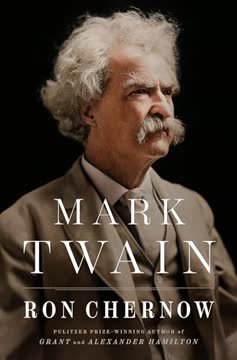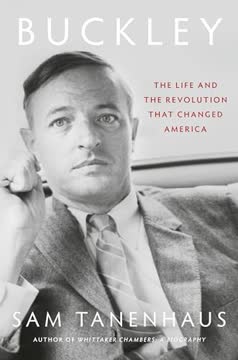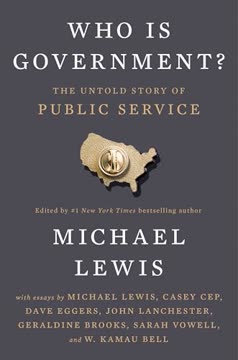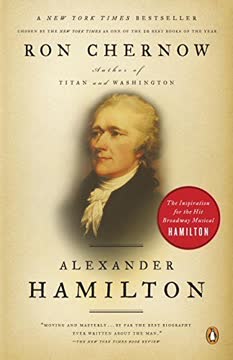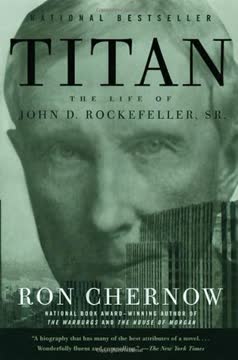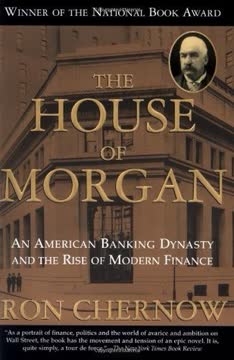Key Takeaways
1. The River's Enduring Spell: A Lost Paradise of Youth
"Oh! that was the darling existence. There has been nothing comparable to it in my life since."
Childhood freedom. Samuel Langhorne Clemens, later Mark Twain, found his earliest sense of liberation on the Mississippi River in Hannibal, Missouri. This bustling waterway, teeming with steamboats and colorful characters, offered a stark contrast to his sheltered small-town life and the grim realities of his family's financial struggles. It was a place where he could indulge in high spirits and escape societal constraints.
Piloting ambition. The dream of becoming a steamboat pilot, a revered figure in the river's "floating kingdom," captivated young Sam. He achieved this ambition before the Civil War, mastering the river's treacherous details and finding immense pride in the demanding profession. This period, though brief, became the "magical touchstone" of his life, symbolizing untrammeled truth and independence.
Nostalgia's grip. Decades later, a successful but world-weary Twain revisited the Mississippi, only to find a changed landscape and a fading steamboat culture. This journey, intended to rekindle cherished memories, instead deepened his poignant sense of loss for a vanished youth. The river, once a source of boundless joy, now reflected the bittersweet truth that the past, once lived, could never be fully recaptured.
2. An Accidental Author: From Printer's Devil to Literary Voice
"I stumbled into the writing profession... as a man falls over a precipice that he is not looking for."
Early literary stirrings. Twain's journey into writing began not with ambition, but necessity. As a printer's devil in Hannibal, he absorbed "acres of good and bad literature," inadvertently training his eye for prose. His first published piece, a satirical jab at a rival editor, revealed a natural talent for humor and a combative style that would define his early journalistic career.
Western crucible. His move to the Nevada Territory, driven by failed mining ventures, proved to be a pivotal moment. Surrounded by a "raffish" cast of characters and a "polyglot slang," Twain honed his craft as a local editor for the Territorial Enterprise. Here, he embraced:
- Hoaxes and tall tales (e.g., "The Petrified Man")
- Mock feuds with rival journalists
- A distinctive, irreverent voice that delighted readers
The birth of "Mark Twain." In 1863, he adopted his famous pen name, a nod to his piloting days, symbolizing a deliberate act of reinvention. This pseudonym allowed him to shed his past and cultivate a public persona that blended humor with sharp social commentary, laying the groundwork for his national recognition as "The Wild Humorist of the Pacific Slope."
3. The Civilizing Influence: Livy, Hartford, and the Pursuit of Respectability
"She was my life, and she is gone; she was my riches, and I am a pauper... She was the most beautiful spirit, and the highest and the noblest I have known."
An improbable match. Mark Twain, the wild westerner, found his anchor in Olivia "Livy" Langdon, the sheltered daughter of wealthy abolitionists. Despite their contrasting personalities and a ten-year age difference, Livy embodied his ideal of purity and intelligence. Their courtship, marked by Twain's ardent letters and Livy's initial reservations, culminated in a marriage that profoundly reshaped his life.
Hartford's embrace. The couple settled in Nook Farm, a genteel Hartford enclave of writers and intellectuals, where Livy's family provided a lavish home and a "civilizing" influence. Livy became Twain's trusted editor, softening his rough edges and curbing his profanities, while he, in turn, adored her unconditionally. This period, marked by domestic bliss and intellectual camaraderie, represented the happiest years of his life.
A bedrock of love. Livy's unwavering love and moral compass provided a stable foundation against Twain's volatile nature and financial anxieties. She managed their opulent household, nurtured their three daughters, and encouraged his literary pursuits. Her presence allowed him to explore his past with tenderness, leading to works like The Adventures of Tom Sawyer, and her influence was instrumental in shaping his evolving views on social justice.
4. A Gambler's Ruin: The Perils of Relentless Speculation
"I have been punished many and many a time, and bitterly, for doing things and reflecting afterward, but these tortures have been of no value to me."
The lure of quick riches. Despite his father's financial failures and his own early struggles, Twain harbored a lifelong "get-rich-quick mentality." He repeatedly plunged into speculative ventures, convinced he possessed a unique business acumen that would yield colossal fortunes. This "money madness" often blinded him to practical pitfalls and sound advice.
Disastrous investments. His most catastrophic ventures included:
- Kaolatype: A photographic engraving process that drained $50,000 (over $1.7 million today) due to an unproven invention and a "swindle from the beginning."
- Paige Typesetter: A fiendishly complex machine that consumed $300,000 (over $10 million today) over a decade, despite warnings about its unreliability and competition from simpler, more practical alternatives like the Mergenthaler Linotype.
- Publishing House: His own firm, Charles L. Webster and Company, was plagued by poor book selections (e.g., Library of American Literature, Pope Leo XIII biography) and mounting debt, ultimately leading to bankruptcy.
The cost of hubris. Twain's boundless optimism and belief in his own "eagle-vision" for business led him to ignore red flags and dismiss expert advice. These financial fiascos not only depleted his and Livy's fortunes but also forced him into grueling lecture tours and intensified his chronic anxiety, casting a long shadow over his personal and creative life.
5. From Rebel to Reformer: Twain's Evolving Social Conscience
"We have ground the manhood out of them, & the shame is ours, not theirs; & we should pay for it."
Slavery's enduring stain. Born into a slave-owning family in Missouri, Twain initially held many of the prejudices of his Southern upbringing. However, his experiences on the Mississippi and later in the West, coupled with Livy's abolitionist family, gradually transformed his views. He began to see slavery as a "monstrosity" that corrupted both enslaver and enslaved.
Advocacy for racial justice. Twain became a vocal champion for Black Americans, notably:
- Financing Warner T. McGuinn's education at Yale Law School as a form of "reparation."
- Promoting the Fisk Jubilee Singers and their spirituals, recognizing their profound cultural significance.
- Denouncing lynching and the "cowardice" of mobs in essays like "The United States of Lyncherdom."
- Criticizing the Chinese Exclusion Act and police brutality against Chinese immigrants.
Anti-imperialist stance. Initially a "red-hot imperialist," Twain's views shifted dramatically after the Spanish-American War. He vehemently condemned American occupation of the Philippines, viewing it as a betrayal of democratic ideals and a "pirate raid." He also became a fierce critic of King Leopold II's atrocities in the Congo, using his platform to expose colonial exploitation and human rights abuses.
6. The Dread Cavalcade of Death: A Life Marked by Unspeakable Loss
"It is one of the mysteries of our nature that a man, all unprepared, can receive a thunder-stroke like that and live."
A family cursed. Twain's life, despite its public triumphs, was shadowed by an almost unbearable series of personal tragedies. The deaths of his loved ones, often sudden and unexpected, profoundly shaped his worldview and fueled his later, darker writings.
Key losses:
- Henry (brother): Died in a steamboat explosion, leaving Twain with lifelong guilt and remorse.
- Langdon (son): Died at 18 months from diphtheria, leading Twain to blame himself for a cold carriage ride.
- Susy (daughter): Died at 24 from meningitis while Twain was on a world tour to pay off debts, leaving him inconsolable and riddled with guilt for his absence.
- Livy (wife): After years of declining health, she died peacefully in Florence, leaving Twain adrift and heartbroken, feeling his "life is wrecked."
- Jean (daughter): Died at 29 from an epileptic seizure in a bathtub, a final, devastating blow that left Twain as the sole survivor of his immediate family.
The weight of grief. These losses, particularly Susy's and Livy's, plunged Twain into deep depression and intensified his philosophical pessimism. He grappled with immense guilt, often blaming himself for their misfortunes, and found solace only in writing and the fleeting distractions of his later years.
7. The Angelfish and the Abyss: A Search for Innocence Amidst Despair
"I had reached the grandfather stage of life without grandchildren, so I began to adopt some."
A peculiar obsession. In his final years, after Livy's death, Twain developed an intense fascination with teenage girls, whom he affectionately called "angelfish." He formed the "Aquarium Club," a select group of young girls, and showered them with attention, letters, and gifts, seeking to fill the void left by his lost daughters and wife.
Reclaiming lost youth. This "second childhood" was a desperate attempt to escape the "sordidness and hatefulness and humiliation" of his past and the crushing grief of his present. The angelfish, always "young and lovely, untouched by care," represented an idealized innocence that contrasted sharply with his increasingly bleak worldview. He sought to recreate the lively household he once knew, believing "youth is the golden time."
A complex dynamic. While Twain's behavior was outwardly chaste and seen by many as the charming eccentricity of a sentimental widower, it was also deeply problematic. He idealized these girls, often treating them as interchangeable "pets," and his intense need for their adoration sometimes overshadowed the needs of his own adult daughters, who viewed the "angelfish phenomenon" with a mixture of confusion, disdain, and resentment.
8. The Unmuzzled Voice: A Cynical Philosopher's Final Truths
"Only dead men can tell the truth in this world."
Shedding self-censorship. After years of tempering his radical views for public consumption and Livy's sensibilities, Twain, in his final decade, unleashed a torrent of uncensored, often vitriolic, commentary. He believed that "the truth always has that effect on people" and felt liberated to express his deepest disillusionments.
Key philosophical tenets:
- Determinism: Humans are "mere automatons," driven by temperament and environment, lacking free will.
- Self-interest: All actions, even seemingly altruistic ones, are motivated by a "secret vanity" to feel good about oneself.
- God's malice: The Creator is either indifferent to human suffering or actively malevolent, inflicting "wanton and unnecessary pains."
- Life as a swindle: Human existence is a "fever-dream" of "joys embittered by sorrows, pleasure poisoned by pain."
Posthumous revelations. Works like "The War Prayer" (a scathing indictment of patriotic hypocrisy), "The Czar's Soliloquy," "King Leopold's Soliloquy" (exposing colonial atrocities), and Letters from the Earth (a blasphemous critique of biblical narratives) were deemed too controversial for his lifetime. They revealed a "pen warmed-up in hell," a furious moralist unafraid to challenge sacred cows, even if it meant alienating his audience.
9. The Man in White: Crafting a Public Persona for Posterity
"I am the only literary animal in my particular sub-species who has ever been given a degree by any College in any age of the world, as far as I know."
The iconic image. In his final years, Twain deliberately cultivated his image as the "Man in White," a sartorial choice that defied convention and became his enduring trademark. This public persona, coupled with his bushy white hair and languid drawl, cemented his status as America's most recognizable and beloved celebrity author.
Master of self-promotion. Twain understood the power of mass media and expertly managed his public image. He:
- Engaged in witty repartee with reporters, often from his bed.
- Used his fame to champion causes (e.g., copyright reform, anti-imperialism).
- Orchestrated his own "triumphal" return to America after paying off his debts.
- Delivered captivating lectures, blending humor with pathos and wisdom.
Shaping his legacy. Aware of his impending death, Twain meticulously planned his posthumous autobiography, dictating his uncensored thoughts for publication a century later. He also cherished his honorary degree from Oxford, viewing it as validation for his unique literary contributions. Despite his private torments, Twain crafted a public image of a wise, witty, and benevolent sage, ensuring his enduring place in the American imagination.
Last updated:
Review Summary
Mark Twain by Ron Chernow is a comprehensive 1000+ page biography that offers an in-depth look at the complex life of Samuel Clemens. Reviewers praise Chernow's meticulous research and engaging storytelling, though some find the book's length and detail overwhelming. The biography explores Twain's literary achievements, personal struggles, and evolving views on race and society. While critics appreciate the thorough examination of Twain's life, some note a lack of literary analysis and question the necessity of certain details, particularly in the latter half of the book.
Similar Books
Download PDF
Download EPUB
.epub digital book format is ideal for reading ebooks on phones, tablets, and e-readers.
